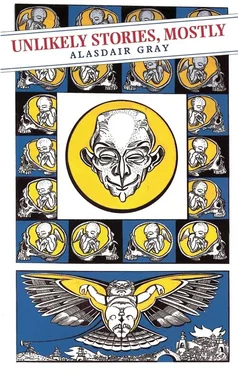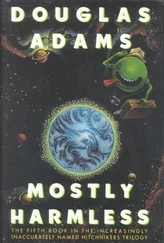A college of investigators had been founded to protect summits from lightning, to study and stabilize the weather, and to maintain ventilation. This college employed clever people from most companies in the work, for no single company could control the climate alone, and although each company liked to keep knowledge to itself they noticed that knowledge grew faster among people who shared it. I was a secretary in that college, recording its achievements and reporting them to the directors of the highest summit of all, for I had been born there.
One evening I sat beside the professor of air, checking rockets at a table on the balcony of our office. This was in a low part of the work above a gate where the coalfleets sailed in, for one of our jobs was to superintend the nearby smoke station. We had found that smoke, enclosed in bags, could lift large weights, and had used this discovery to create a new transport system. My chief was testing the powder which made the rockets fly, I tested the fuses. Without raising my eyes I could see fat black ships wallowing up the shining creek from a distant ocean. They docked directly under us but it would be a week before they unloaded. This was midsummer and a general holiday. All building had stopped, most fires were damped, the college had made a gale the night before and swept the sky clear and blue. The cries of children and picnickers came tiny and shrill, like birdnotes, from the green hills and valleys beside the creek. These smooth slopes had been made by giving ashbings a coat of soil and turf, and the lowest people liked to holiday on them. Even I had happy memories of playing there as a child. But the companies had started turning the old ashes into brick, and already half the green park had been scraped flat. The diggers had uncovered a viaduct of arches built two thousand years before by the old imperial construction company. The sight might have given me a melancholy sense of the booms and slumps of history but I was too excited. I was going to visit the height of the axletree.
The chief packed his rockets in a slingbag. I shouldered a light launching tube. We walked through our offices in the thickness of the outer wall and down some steps to the smokestation.
A two-seater lift was locked to our platform. We climbed in and arranged cushions round us while the bag filled up. It was a light blue bag with the college sign on the side: a yellow silk flame with an eye in the centre. The chief unlocked us and we swung into the hot oblique updraught used by very important people. We crossed the docks, the retorts and crucibles of the furnacemen and a crowded circus cheering a ball-game. We passed through the grate of an ancient portcullis, ascended a canyon between sewage cylinders with cedar forests on top, then swooped through a ventilator in the first ceiling. Within an hour we had pierced ceilings which separated six national companies, the customs officers leaping up to salute us on the lip of the ventilators as soon as they recognized the college colours. In solemn music we crossed the great canteen, rising into the dome as the foreman of the work, like a bright white bee, served the sacred food to a swarm of faithful on the floor below. The ventilator in the dome opened into a windcave where an international orchestra was distilling rain with bright instruments into an aquarium that was the head water of three national rivers. We lost the hot updraught here but the chief steered us into a current flowing up a slide of rubble where an ancient summit had been shaken down by earthquakes during the first big slump. It was landscaped with heather, gorse and hunting lodges. Above that we entered the base of the tallest summit of all, ascending vertically through floors which were all familiar to me: hospitals, nurseries, schools, emporiums, casinos, banks, courts and boardrooms. Here we were stopped at a ventilator for the first time, since the highest inhabited parts of the tower belonged to the military. The chief spent a long time proving that his rockets were not weapons but tools for testing the upper air, and even so he was only allowed through when I showed the examining colonel, by a secret sign, that I was not only a member of the college but an agent of his company. So we were allowed to rise up the glass funnel to the scaffolding. On every side we saw officers in neat identical clothes tending the huge steel catapults and firing pans poised to pour down thunderbolts and lightning on the other parts of the work, especially toward towers with co-operative connections. We passed through a builders’ village, deserted except for its watchmen, then nothing surrounded us but a frame of slender rods and the deep blue blue blue of the gloaming sky. The thin cold air began to hurt my lungs. We stopped when our bag touched the highest platform. The chief slung the rockets from his shoulder and climbed a ladder to the very top. I followed him.
I had never known such space. The pure dark blueness was unstained by the faintest wisp of cloud. I lay flat on the planks with my head over the platform edge, trying to see the sunset on the horizon, but the golden shine of it was cut small by the web of bridges linking the summits lower down. I felt like a fly clinging to the tip of an arrow, the first of a flight of them soaring through infinite air. Lights were blinking on the tips of summits below. These were the signals of college men who would observe our experiments with lens and theodolite. The chief signalled back at them with a hand-lamp. He even blinked at the spiky summit of the great co-operative, which was nearest. This was a joke, because the co-operative pretended to ignore the work of our college, while watching it very closely.
The chief set the tube to launch a rocket vertically for a quarter of a mile: the colour and length of the fiery tail would show the nature of the air it travelled through. All being ready, he told me to start the water clock, then lit the short fuse. My eyes, of course, were on the clock, which ticked off only four drops before I heard an explosion. Looking up I saw a great shower of sparks. Our rocket had broken at a height of sixty feet. “A dud,” said the chief, and fired another, which also broke up too soon.
“Sir!” I said, staring at the clock. “It has exploded at exactly the same height.”
“Coincidence!” grunted the chief, but checked the third rocket very carefully before firing, and that also broke at the same height. I trembled and the chief was sweating. With great precision he angled the tube and fired the fourth rocket upward along the diagonal of a square. It exploded six drops later. We fired the remaining rockets at the same angle in twenty different directions with the same result. Which showed there was a very wide obstruction sixty feet above our heads.
You cannot understand our feelings unless you realize that for several centuries men had stopped believing that the world hung like a yolk inside an eggshell of sky. Holy people still thought the sky was God’s home, and in wartime the heads of most big companies declared their tower was closest to God’s original plan and would reach heaven first. But clearly the various companies were not building to reach anywhere but to surpass each other for financial and military reasons. So educated men regarded the universe as an infinite space only measurable by the distance between the bodies it contained. We thought we could go on building for ever.
The chief and I stared upward. It was hard to believe that these starry globes we had studied from infancy (some shining with reflected light, some composed of it) were on the far side of a barrier. We were roused by a breath of breeze. Lights on the lower summits were blinking frantic questions at us. The chief took his lamp and signalled that he would confer on the matter soon, then led me down the ladder to the lift. He said, “I believe you spy for the directors of this tower. How can I obtain an immediate interview with its president?” I told him the president could be most quickly contacted through his generals. We descended to the military level where the officer in charge let the chief write this note, and took us into custody while it was delivered.
Читать дальше












